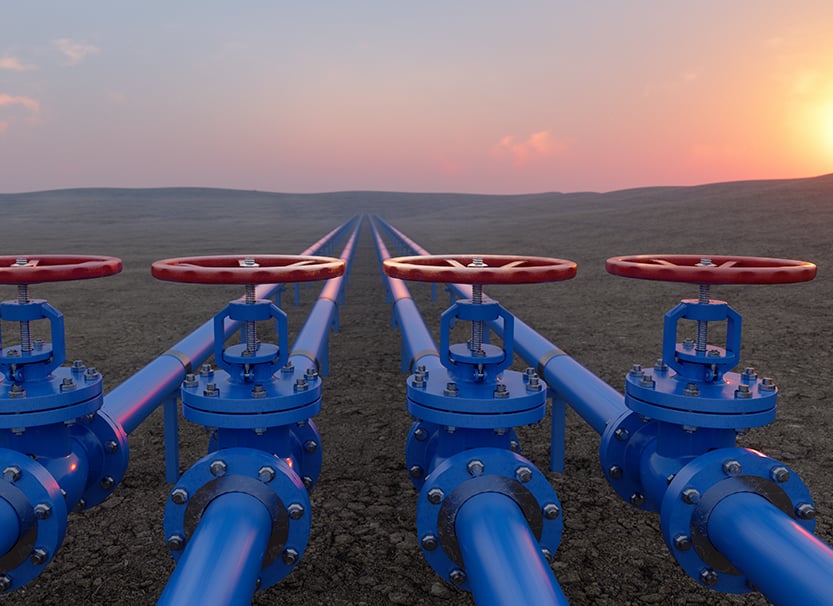
EPA Proposes Enforcement Initiatives Addressing PFAS, Climate Change, and Environmental Justice
On January 19, 2023, the U.S. Environmental Protection Agency (EPA) published a Notice soliciting public comment on its proposal to add environmental justice, climate change, and per- and poly-fluoroalkyl substances (PFAS) contamination to its National Enforcement and Compliance Initiatives (NECIs) for the 2024–2027 fiscal year cycle.
California Air Resources Board Set to Finalize Ambitious Climate Plan
On November 16, 2022, the California Air Resources Board (CARB) released an updated version of its 2022 Scoping Plan for Achieving Carbon Neutrality. The plan sets ambitious goals for achieving carbon neutrality in California by 2045. Despite the plan’s being only a guiding document, it will likely lead to other agency actions that set stringent requirements related to reducing greenhouse gas emissions.
Extensive Climate Disclosure Requirements Proposed for Federal Contractors
On November 10, 2022, the Federal Acquisition Regulatory Council, composed of the Department of Defense, the General Services Administration, the National Aeronautics and Space Administration, and chaired by the Office of Federal Procurement Policy in the Office of Management and Budget, issued a proposed rule that would require certain federal contractors to disclose climate-related information to the System for Award Management (SAM) and, in certain instances, make such information publicly available on its website. (more…)
Energy Companies Petition U.S. Supreme Court to Review Remand of Climate Change Litigation to State Court
On October 14, 2022, BP, Chevron, ExxonMobil, and other major energy companies petitioned the U.S. Supreme Court to review a decision by the Fourth Circuit Court of Appeals to send a climate change lawsuit back to state court (the Petition). In the underlying lawsuit, the City of Baltimore is seeking climate-change-related infrastructure damages for the defendants’ alleged deception of consumers and the public about climate change. The defendants previously removed the case to federal court, but the District Court for the District of Maryland remanded the case to state court—a decision the Fourth Circuit later upheld. (more…)

IRA-Driven Carbon Capture Needs Strategic Approach
Sidley Austin lawyers say that developers should proactively engage agencies in order to effectively leverage Inflation Reduction Act tax credits and federal funds for carbon capture and sequestration projects. The permitting and approval process is ripe for reform, they say.
United States Ratifies the Montreal Protocol’s Kigali Amendment Six Years After Amendment’s Introduction
On September 21, 2022, the U.S. Senate voted to ratify the Kigali Amendment, an amendment to the Montreal Protocol that addresses hydrofluorocarbons (HFCs), six years after the Kigali Amendment was officially adopted at the 28th Meeting of the Parties to the Montreal Protocol on October 15, 2016, in Kigali, Rwanda. While the Montreal Protocol originally sought only to phase out the consumption and production of ozone-depleting substances chlorofluorocarbons and hydrochlorofluorocarbons, the Kigali Amendment established plans to reduce the production and consumption of HFCs — greenhouse gases with high global warming potential — by more than 80% over the next few decades. (more…)

How the Supreme Court’s EPA Ruling Complicates Climate Action and What Companies Can Do
The Supreme Court’s recent decision in West Virginia v. EPA clips the EPA’s ability to address climate change and may fundamentally alter the administrative authority of other federal agencies to tackle big problems.
As state and local governments find ways to fill the void, shareholders are demanding a response from Corporate America. How seismic is the ruling? Will it doom our efforts to address climate change? And what impact will the enactment of the Inflation Reduction Act have on the ruling? Join The Sidley Podcast host and Sidley partner, Sam Gandhi, as he speaks with two of the firm’s thought leaders on these subjects — Justin Savage and Simone Jones.
EU Corporate Sustainability Reporting Directive — What Do UK- and U.S.- Headquartered Companies Need to Know?
Non–EU companies with a significant presence in the EU or with securities listed on an EU-regulated market will become subject to new EU rules on corporate sustainability disclosures (the Corporate Sustainability Reporting Directive, or CSRD). The text of the CSRD has now been agreed by the EU institutions.1 CSRD is expected to become EU law later this year. Once implemented into the national law of EU member states, its requirements will be phased in from 2024.
Head of DOJ Environmental Division Announces Enforcement Priorities
Todd Kim, Assistant Attorney General at the U.S. Department of Justice (DOJ) Environment and Natural Resources Division (ENRD), delivered remarks at the American Bar Association’s National Environmental Enforcement Conference on December 14, 2021. He provided insight into what DOJ plans to prioritize in environmental enforcement, centered on criminal enforcement, climate change, and environmental justice.
Kim emphasized that the purpose of enforcement is to ensure that businesses are properly incentivized to comply with the law through deterrence and to provide a level playing field, while protecting public health and the environment. He noted that DOJ has prioritized fighting corporate crime and is revising applicable polices, so ENRD will consider pursuing potential environmental and non-environmental crimes, as well as a business’s environmental and non-environmental track record in prosecution decisions.
Kim focused on methods of sector-wide enforcement, citing the Petroleum Refinery Initiative that involved settlements covering 112 refineries in 37 states since 2000. Kim also expressed an interest in more penetrating identification of all involved parties within a business, as well as in the full supply chain, where relevant. This focus could be especially impactful for importers of chemicals, pesticides, or wood products.
With these various tools in mind, Kim cited climate change and environmental justice as the two highest priority issues. For climate change, he indicated greater enforcement for air emissions from petrochemical plants and from facilities with refrigeration systems. For environmental justice, he provided a general assurance that ENRD is paying greater attention to potential violations in communities of color and low-income communities that may be disproportionately burdened by environmental hazards and harms.
Key Takeaways: People Places Planet: The Enforcement Angle Podcast Featuring SEC’s Kelly Gibson
This Sidley Update provides key takeaways from the most recent “The Enforcement Angle” episode as part of the Environmental Law Institute’s People Places Planet podcast. The episode is hosted by Justin Savage, partner and global co-leader of Sidley’s Environmental practice, and Ranah Esmaili, who recently joined the firm as a partner in the global Securities Enforcement and Regulatory practice from the SEC’s Asset Management Unit within the Division of Enforcement. Justin and Ranah talk with Kelly Gibson, director of the Philadelphia Regional Office for the SEC and leader of the Climate and ESG Task Force within the SEC’s Division of Enforcement.
Read more here.

